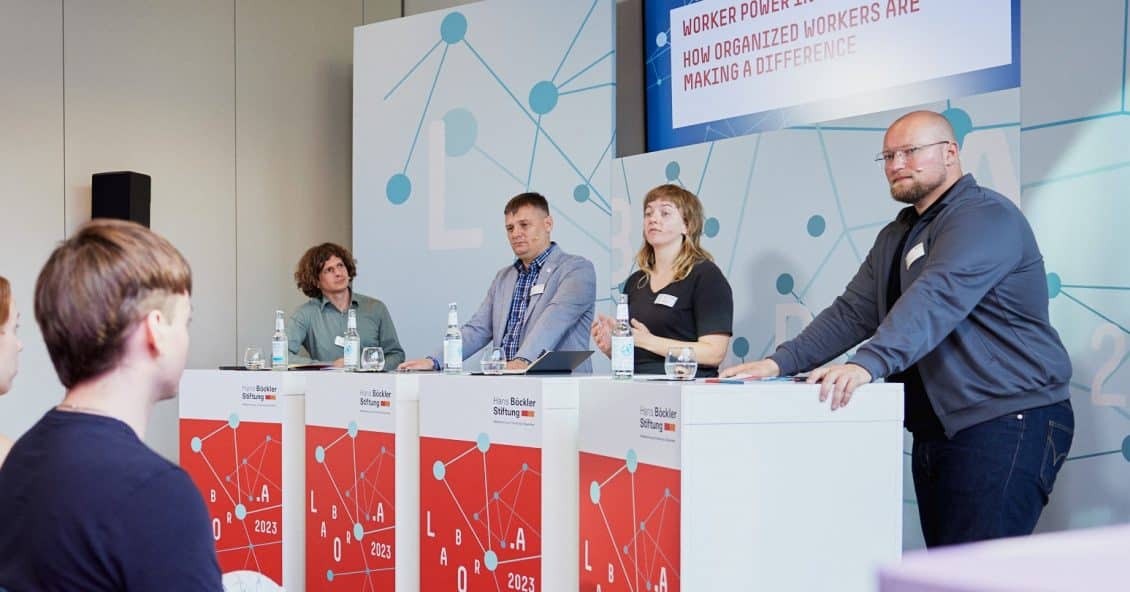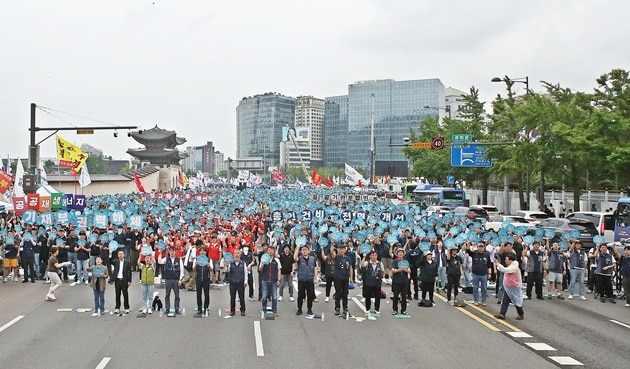Rise in Tech worker unionization: A spotlight at Labor.A conference in Berlin
04.10.23
The Labor.A Conference, organized by the German trade union foundation Hans-Böckler-Stiftung, concluded in Berlin last week, drawing attention to the accelerating pace of unionization within tech. The participants, including prominent unionists from the global union movement and German-speaking world, described 2023 as a pivotal year that has witnessed an uptick in unionization within the technology sector, as numerous workers have joined together in response to corporate restructuring and job reductions. This surge in union organizing among tech employees has been motivated by the need to secure a voice at work and improve their working conditions.
A Voice for Workers
Phoebe Schmidt, a member of Germany’s United Services Union ver.di, detailed the experience of establishing a works council at a tech company in Berlin. In Germany, a works council is a legally recognized body allowing employees to participate in company decision-making processes. Phoebe elaborated how the company’s return-to-office policies acted as a catalyst for workers to initiate the formation of a works council.
“My partner’s company introduced a return to office policy, but they required a works council agreement to fully implement it. In our company, we didn’t have such a council, and it became evident that they were seeking our input without genuinely considering our opinions on issues like flexibility and employee well-being.”
Widening Union Landscape in Germany
Oliver Hauser, from the tech division at ver.di in Berlin, noted that the trend of unionizing and setting up works councils is evident at a number of tech companies in Germany. With the support of ver.di, workers have established works councils at companies including N26, TikTok, Soundcloud, and Spotify. These new works councils add to existing entities already established at tech companies SAP and IBM.
“Even though in some rare cases an individual worker can have enough leverage to negotiate on their own some aspects, such as the salary, there’s a lot more leverage when workers negotiate with the employer collectively.”
Tech Union Growth in Romania
Florentin Iancu from Romania’s SITT union spoke about the union’s growth since he was involved in establishing the union with other Alcatel-Lucent workers in 2009. Romanian tech workers from companies like Accenture, Tech Mahindra, and Wipro have joined SITT to negotiate social protections for workers from layoffs, and health and safety measures during the COVID pandemic.
“It’s essential that workers are able to negotiate collectively because individual workers can always be replaced, outsourced, or contracted out. The second point is about the appetite of workers to negotiate and have a voice at work. Of course, issues like return to the office, and remote work are important, but the main drive for workers organizing is to get a seat at the table, and to have influence on all aspects of their work.”
International Solidarity
Adrian Durtschi, head of UNI Global Union’s organizing department, underlined the importance of international organization amongst tech workers.
“Tech employees work for companies that see no borders; unions should operate globally too. That’s why, at UNI, we support tech workers organizing internationally– in Switzerland, South Korea, Kenya, and all over the world. Tech workers organizing with ver.di in Germany can support their colleagues in other countries with the support of UNI. Our role as a global federation of national unions is to help workers organize everywhere.”
The panel at the LaborA conference underscored the growing momentum in tech worker unionization, showing a path forward for tech workers willing to organize to make their voices heard.


